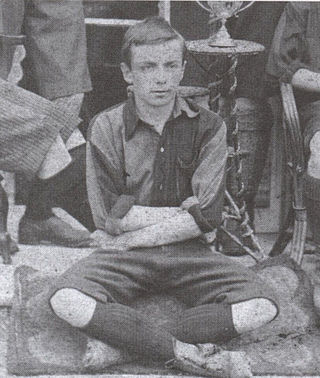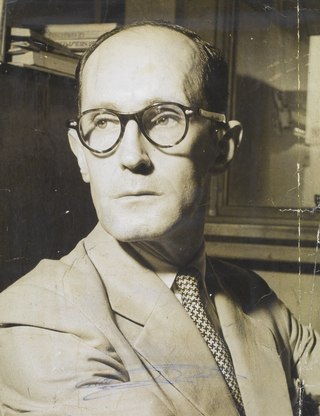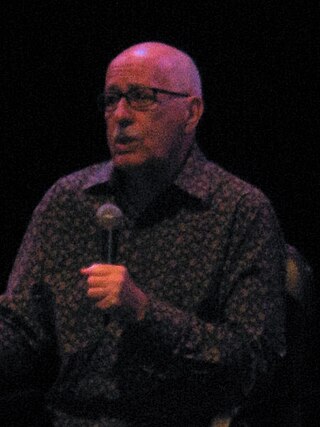
Milton Silva Campos do Nascimento, also known as Bituca, is a Brazilian singer-songwriter and multi-instrumentalist.

Charles William Miller was a Brazilian sportsman, who is considered to be the father of football in Brazil. Miller founded São Paulo Athletic Club (SPAC), one of the oldest sports club in Brazil, and found the Liga Paulista de Foot-Ball, current Campeonato Paulista, Brazil's first football league. He is also considered the father of Rugby union in Brazil.

MacLean, also spelt Maclean and McLean, is a Scottish Gaelic surname Mac Gille Eathain, or, Mac Giolla Eóin in Irish Gaelic), Eóin being a Gaelic form of Johannes (John). The clan surname is an Anglicisation of the Scottish Gaelic "Mac Gille Eathain", a patronymic meaning "son of Gillean". Gillean means "the Servant of [Saint] John [the Baptist]"), named for Gilleathain na Tuaidh, known as "Gillian of the Battleaxe", a famous 5th century warrior.

Brazilian literature is the literature written in the Portuguese language by Brazilians or in Brazil, including works written prior to the country's independence in 1822. Throughout its early years, literature from Brazil followed the literary trends of Portugal, gradually shifting to a different and authentic writing style in the course of the 19th and 20th centuries, in the search for truly Brazilian themes and use of Brazilian forms.

Carlos Drummond de Andrade was a Brazilian poet and writer, considered by some as the greatest Brazilian poet of all time.

Andrade is a surname of Galician origin, which emerged in the 12th century as the family name of the knights and lords of the small parish of San Martiño de Andrade, in the municipality of Pontedeume. The first mention of this small territory is to be found in the documentation of the monastery of San Xoán de Caaveiro, and belong chronologically to the 9th century. It was part of the region of Pruzos, which was created as an administrative and ecclesiastical territory of Kingdom of Galicia in the sixth century by King Teodomiro through a document written in Latin called Parrochiale suevum, Parochiale suevorum or Theodomiri Divisio. From the 12th century Pruzos, and therefore Andrade, were integrated into the county of Trastámara that belonged to the lineage Traba, the most powerful Galician family. By this same time the family group: Fortúnez, begins to unite their names Andrade as surname, since in this parish their family home was located. The knights of Andrade were faithful vassals of their lords the Counts of Trastámara throughout the middle centuries of the Middle Ages.

Pampulha–Carlos Drummond de Andrade Airport is an airport serving Belo Horizonte, Brazil, located in the neighborhood of Pampulha. Since December 16, 2004, the airport is also named after the Minas Gerais-born poet Carlos Drummond de Andrade (1902–1987).

José Oswald de Souza Andrade was a Brazilian poet, novelist and cultural critic. He was born in, spent most of his life in, and died in São Paulo.

Itabira is a Brazilian municipality and a major city in the state of Minas Gerais. The city belongs to the Belo Horizonte metropolitan area mesoregion and to the Itabira microregion.
Luisinho is the diminutive of Luís, a Portuguese given name.
Drummond is a Scottish surname and clan name, but also occurring in Portugal and Brazil.
Belgian Brazilian is a Brazilian person of full, partial, or predominantly Belgian ancestry, or a Belgian-born person immigrant in Brazil.
Scottish Wanderers Football Club, commonly known as Scottish Wanderers, were a Brazilian football club from São Paulo. They competed in the Campeonato Paulista in 1914 and in 1915, and were one of the first professional clubs in the country.
Manoel Wenceslau Leite de Barros was a Brazilian poet. He won many awards for his work, including twice the Prêmio Jabuti, the most important literary award in Brazil.

Silviano Santiago is a Brazilian writer, literary critic, essayist and scholar.
Voe Minas Gerais was a program and informal name of a domestic airline based in Belo Horizonte/Pampulha – Carlos Drummond de Andrade Airport, Brazil, established in 2016 by the Government of the State of Minas Gerais via its Minas Gerais Development Company CODEMGE.
Ser Minas Tão Gerais is a piece of musical theater first produced by the group Ponto de Partida in 2002, written and directed by Regina Bertola. The play is based on the poetry of Carlos Drummond de Andrade and Milton Nascimento, and is rich with cultural references of Minas Gerais.

Lupe Cotrim or Lupe Cotrim Garaude was a Brazilian poet and university professor.











